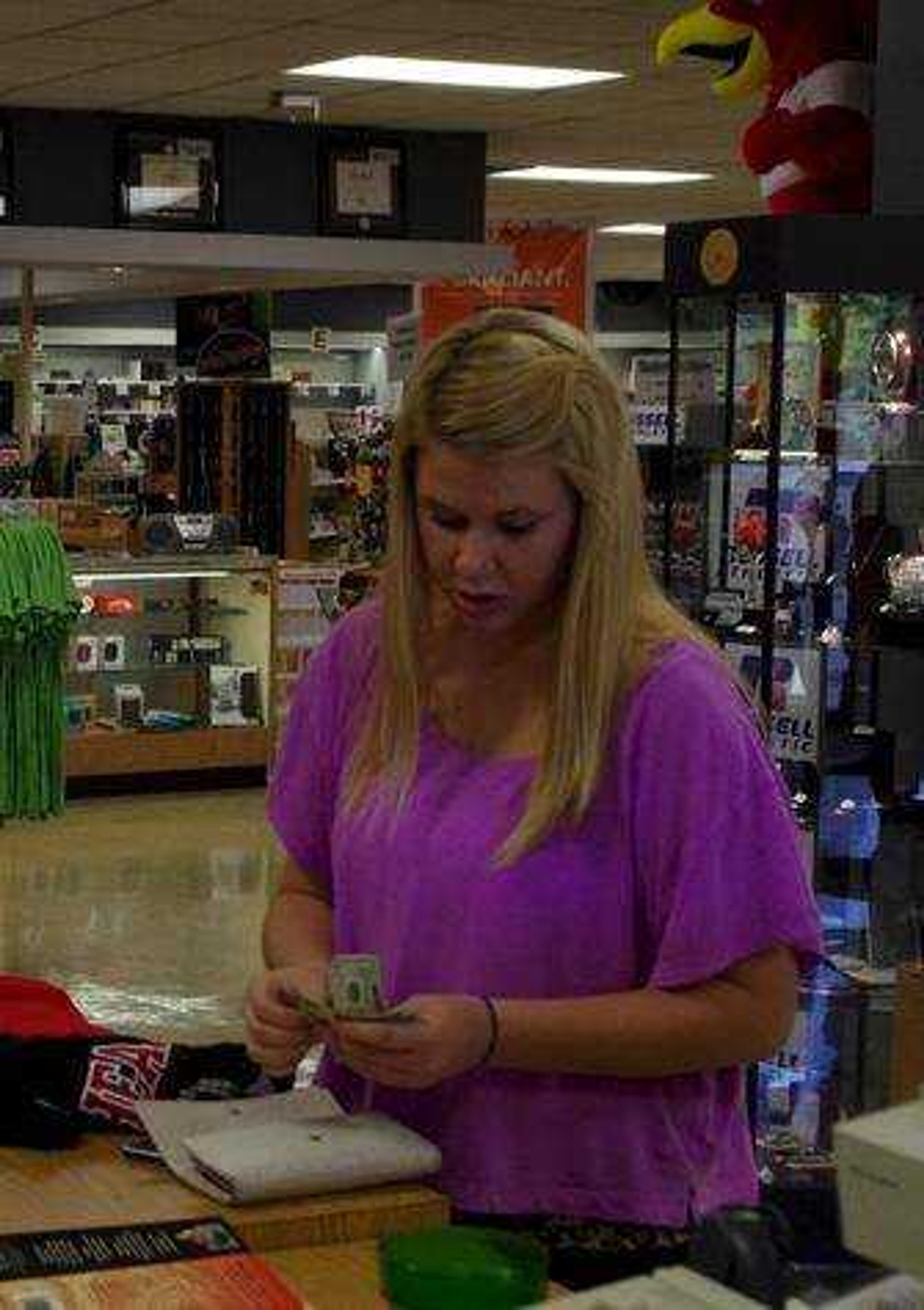Like it or not, technology is constantly changing, and universities have to adapt. Southeast Missouri State University is one that may have to adjust by altering textbook usage from students renting hardbound textbooks to accessing e-books online.
Southeast rents textbooks to students for $25.94 per course even though the cost of a new textbook is around $125, according to Southeast Bookstore manager Jan Chisman.
"I think renting is much cheaper than buying, and I know in the college bookstore industry we see more and more universities renting textbooks as well, but they may have a different setup than we do," Chisman said.
Chisman said some universities charge a percentage of the retail price as a rental fee while others charge a rental fee per credit hour.
According to Chisman, Southeast is at the less expensive end of the spectrum when it comes to renting textbooks since a lot of universities rent at a percentage of the retail price, which varies.
"The last time I had checked with the University of Central Missouri they rent textbooks as well," Chisman said. "I think they're around $40. Same way with Missouri Southern in Joplin, they rent textbooks, I believe, per credit hour. I think they are higher than us. Southern Illinois University Edwardsville rents textbooks and, I think, we have always come in under most of those places."
Bonnie Elmore at SIUE said the rental fee increased to $11.70 per credit hour this fall.
According to Kathy Mangels, vice president of Finance and Administration at Southeast, one benefit from renting textbooks at Southeast is that textbooks are available for all undergraduate courses compared to some universities that may not have a rental program for all courses.
"They may rent all their basic English courses, maybe their basic math, maybe the first level of biology, but when you get up to your junior or senior level classes they may not rent those books at that point, and you may have to buy them," Mangels said.
Although renting textbooks at Southeast will not phase out anytime soon, e-books are becoming more prevalent on campus and could possibly be used more than hardbound textbooks in five to 10 years.
According to Mangels, Southeast created a committee last year called "The Student of 2020." Within the committee are subcommittees that observe how technology is changing and how to plan ahead.
"One of the things discussed is how technology is really changing the textbook industry because they're going to e-books," Mangels said. "There's publishing companies that are saying we're not publishing books anymore. Our business has changed because of the web and technology."
Mangels said Southeast already has some courses using e-books, which can be accessed online using an access code that the students purchase at the Southeast Bookstore.
"Not that we're saying we're going to get rid of textbook rental, it's just the discussion of where is the world of textbooks going, and we have to be planning because we want students to learn with the most current options that are out there," Mangels said. "So it means that you inevitably have to make changes both in the classroom and the textbooks."
Mangels said Southeast has some courses in which faculty already have started using some of the access codes. Students in beginning algebra, a freshmen class, purchased the access code to log in to use the e-book online. However, students still attend class.There are 26 courses that use access codes right now at Southeast.
"The access code is like a pin number a student uses to log in to view the e-book for the class," Mangels said. "E-books have video, audio, a variety of different media."
According to Mangels, the access code is more expensive than renting a textbook. The access code for beginning algebra costs $93.35 plus tax.
Mathematics instructor Linda Tansil said the e-book looks identical to the textbook, and it is easy to navigate.
"Students have ways to navigate," Tansil said. "They can just go forward and back to read the next page, they can enter a certain page in the search box and it pops up, they can zoom in. They can even print selected pages from the e-book."
Students who do not want to read the e-book have an option to view videos.
"Students can go to chapter contents, which has links to all the videos for that chapter," Tansil said. "If they are doing a math problem for homework, some problems have videos linked to them where they can view the video related to the problem."
To access the e-book, students must have a device that will run Adobe Flash Player, Tansil said. Devices like iPads will not work because they will not allow Flash.
"If the device is Windows based then e-books can be accessed through that device," Tansil said.
Tansil said she believes e-books will be used more and more in the future.
"I have been to meetings with publishing companies, and they think eventually no one will have a textbook," Tansil said. "My niece goes to a high school in New Jersey where no one has a textbook, and they view their books online."
Mangels said that despite whatever changes are made in the future, the focus at Southeast will be on the benefits to the student and the classroom.
"It's very important, whether it's a textbook or online, that the faculty has the right tools so that the students can learn and be successful," Mangels said. "That's always the focus at the end -- the student and their ability to learn in the classroom."






